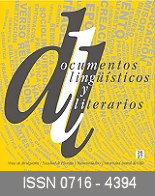Construcción remota de material virtual para FLE
Virtual material remote construction for FFL
Abstract
This article presents the methodology of design, construction, and evaluation of a virtual material for teaching and learning French as a foreign language with students from a Colombian public university. The material was designed as a module of six activities in which students can consolidate what they have learned in class. For its design, the LOCOME methodology was followed; Learning Objects Construction Methodology, which is developed in four stages: needs analysis, design, assembly, and evaluation of educational material. In this methodology, the quality of the final product prevails over the sequentiality of the process. For the pedagogical framework, it was considered both the task-based approach and the b-learning modality, as well as concepts such as autonomy and transversality. The module is found on the Moodle platform as part of the Virtual Complementary Activities for EAP-ESP Courses project, which addresses the needs of the university’s extracurricular foreign language courses. A piloting phase was carried out with 45 students who belonged to different academic programs which allowed to evaluate the effectiveness and usability of the product. The quality of the module is the result of a contribution to virtual learning, which has proven to be crucial nowadays due to the COVID-19 pandemic and accounts for the effectiveness and reliability of the methodology.





